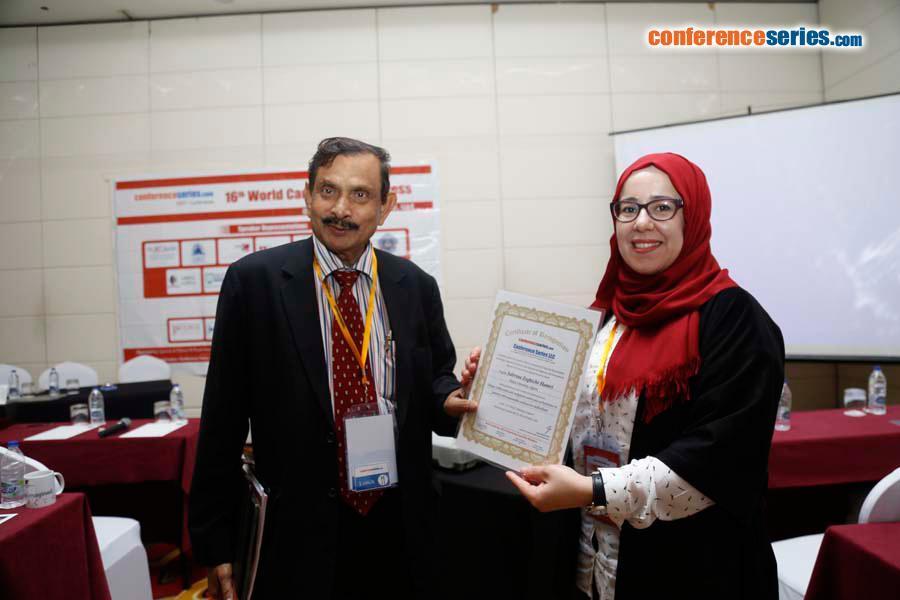
Sabrina Zeghichi-Hamri
Bejaia University, Algeria
Title: Omega-3 fatty acids and malignant ventricular arrhythmias in patients with implantable cardioverter defibrillator
Biography
Biography: Sabrina Zeghichi-Hamri
Abstract
Background – Studies that evaluated the effects of omega-3 polyunsaturated fatty acids (n-3) on cardiovascular diseases have yielded conflicting results. We aimed at examining the association between plant/marine n-3 and malignant ventricular arrhythmias (MVA) among patients benefiting from the best preventive strategy including implantable cardioverter defibrillator (ICD).
Methods and Results – Consecutive patients in whom an ICD was implanted for primary or secondary prevention of MVA were eligible. All patients had blood fatty acid analysis. The method of Kaplan-Meier was used to estimate the survival curves in each quartile of the main plant (ALA) and marine (EPA and DHA) n-3. Among the 238 enrolled patients, 100 had a relevant endpoint recorded by the ICD or died from a cardiac cause during a mean follow-up of 30±12 months. No significant difference in MVA was observed between quartiles of ALA (log-rank test p=0.88), EPA (log-rank test p=0.58) and DHA (log-rank test p=0.97). In a multivariate Cox proportional hazard model including age, sex, ischemic heart disease, diabetes, smoking, hypertension and high cholesterol as covariates, we found no association between MVA and n-3: hazard ratio was 1.12 (95% CI 0.62-2.02) for ALA and 1.44 (95% CI 0.81-2.58) for the sum of main marine n-3.
Conclusions – Plant and marine n-3 do not seem to either increase or decrease the risk of MVA in patients who are not n-3 deficient and benefit from the most effective preventive treatment. Further studies are required to test whether n-3 deficient patients would still benefit from n-3 supplements. Finally, these data raise major questions regarding interactions between dietary n-3 and certain medications.






